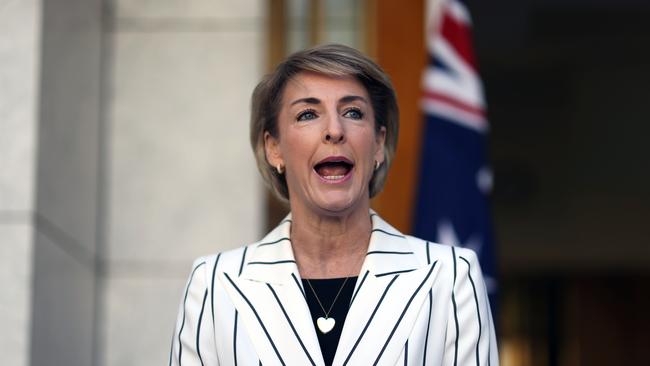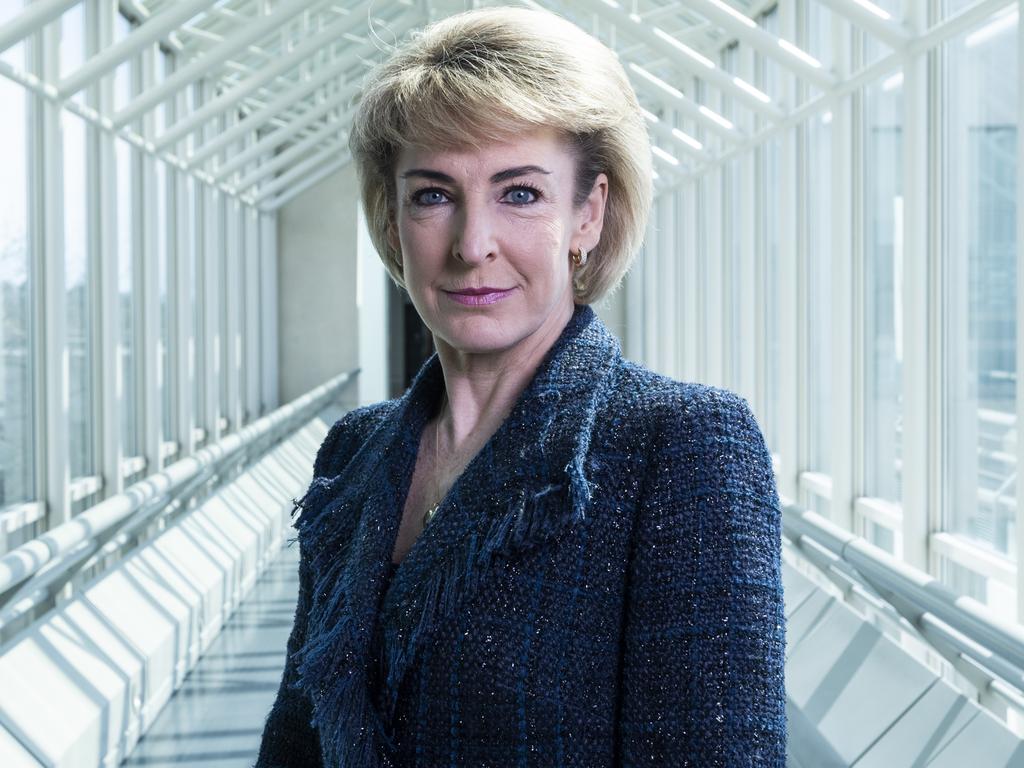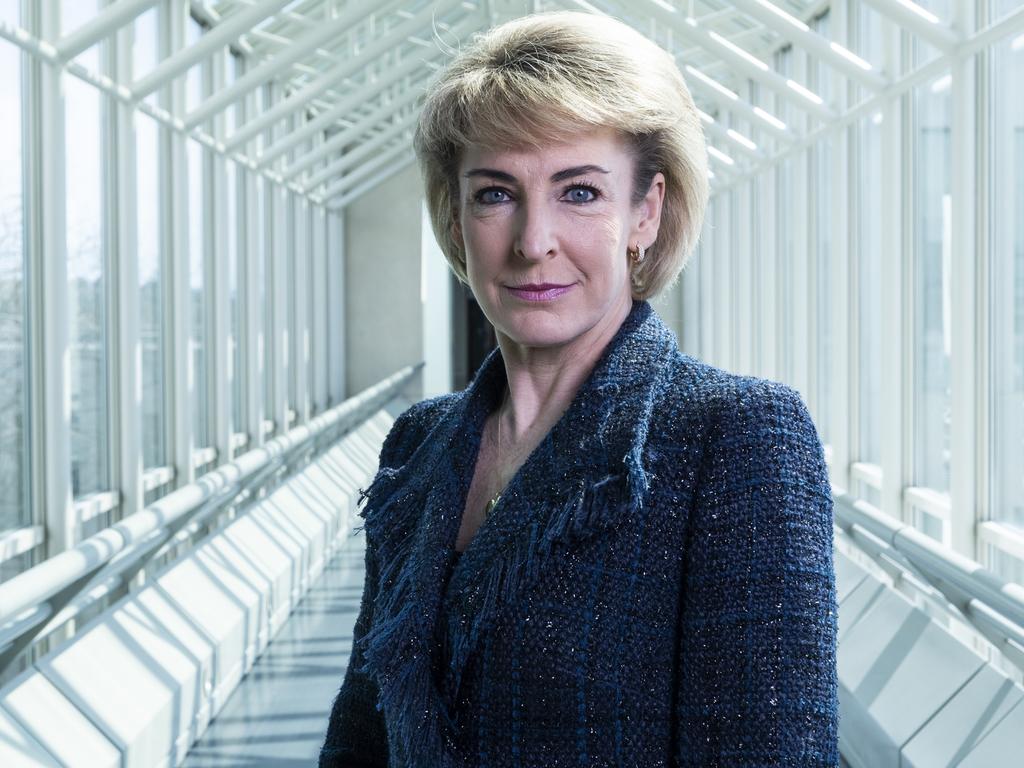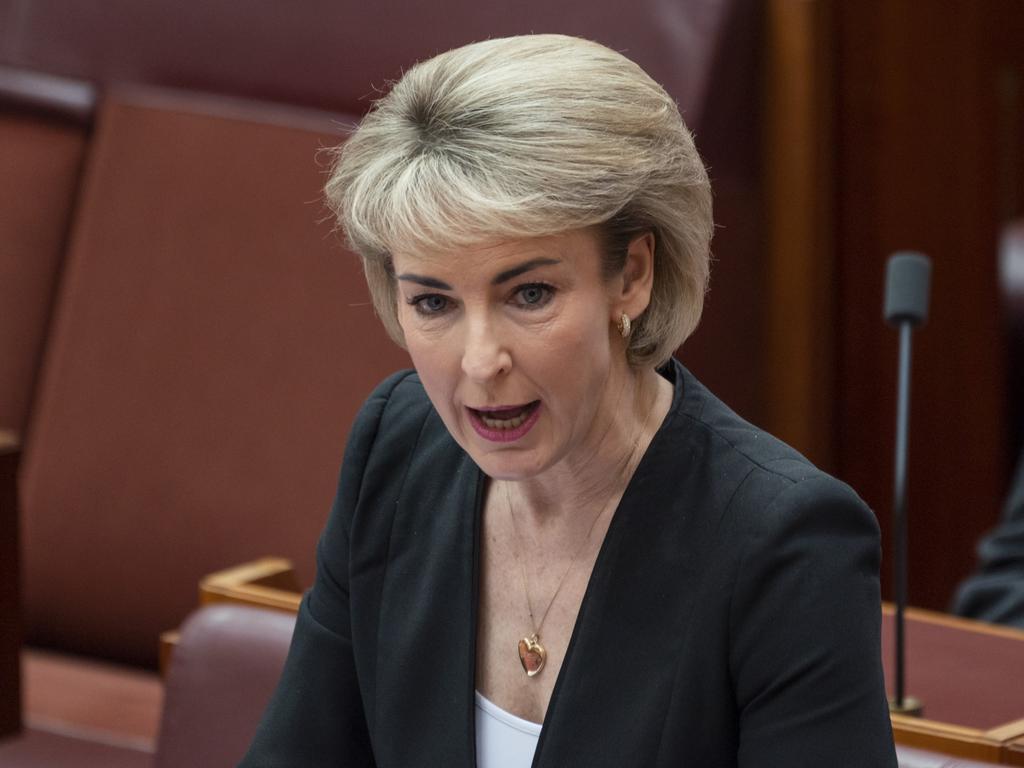Michaelia Cash missing in action on vaccine mandate debate
Of what use is a federal government if it goes missing when its own regulator asks it to stand up and be counted?

Readers will be familiar with the issue of mandatory workplace vaccination for Covid-19. One by one, we have seen legal challenges against mandatory vaccination policies and health orders fail. Now, though, an important case is on the cusp of being heard by the Fair Work Commission.
In a significant move, the relevant federal minister, Michaelia Cash, has been asked to intervene, and make submissions, by the full bench of the commission.
The foundations of this workplace dispute were laid back in August when BHP executive and Minerals Australia president Edgar Basto revealed the company was considering whether a vaccine mandate would apply to its Australian mine sites and offices. Basto announced a trial of on-site vaccinations at its Mt Arthur coalmine in the NSW Hunter Valley and said: “We have an obligation to ensure our people are safe when they are at work, and to support the health of the regional communities where we operate.”
The Construction, Forestry, Maritime, Mining and Energy Union’s mining and energy division had already made its opposition clear. The union had said it encouraged vaccination, and wanted paid leave and employer-funded incentives, but did not support mandates. The union view was that mandates were directions only health authorities should have the power to issue, while individual employers or employer associations should not.
It noted that no government mandate was present for mining in NSW. By contrast, a WA government mandate for the resources sector was made in early October.
When it comes to Covid-19 vaccination mandates, talk of freedom, liberty, choice and sensible individual decision-making by those responsible for their own health choices is ultimately ideological self-indulgence on the part of those who have all care but no responsibility. Anyone who employs people and therefore holds a work cover policy is held liable for the health and safety of those in the workplace, and is subject to financial penalty – and even criminal prosecution – if they fail in their duty of care.
So by late October, BHP had begun the introduction of a vaccine mandate. Mine workers had until November 10 to have one shot, with the second due by January 31. Failure to comply would lead to barred entry for work, with a disciplinary process containing dismissal as the final outcome.
The union applied to the FWC for a conciliation conference (mediation-style talks) and hoped the policy would be withdrawn there, voluntarily, by BHP. The union pointed out that there was no public health order in NSW requiring mandatory vaccination in the mining industry, and claimed that other mines were not implementing similar measures. “An open-cut coalmine is not the same as a hospital or aged-care facility,” a CFMEU spokesperson said.
BHP stood firm, and so the talks in the FWC failed to satisfy the union. It made an application for commission orders to overturn the mandate, which it says affects about 20,000 workers, including contractors. This application was heard recently and the decision was handed down this week, in favour of BHP. The union responded to the decision by saying it was “disappointing and unfair”.
District branch president Peter Jordan said: “The NSW government does not consider mandatory vaccinations necessary in the mining industry … (so) mining companies should be striving for high rates of vaccination through education and incentives, not starving workers into submission.”
In its decision, the FWC said the virus posed a significant risk to health and safety, and that vaccinated people had a reduced risk of infection. It noted that employers are legally required to take all reasonable measures to protect health and safety.
Further, the decision noted that BHP had agreed to halt the results of any disciplinary action until the decision of a final hearing by the full bench is handed down. About a quarter of directly employed workers are reportedly holding out and refusing vaccination.
A five-member full bench of the FWC, led by president Iain Ross, has set aside November 24 and 25 to hear submissions. The bench determined that the matter has implications that are wide-reaching, and has sought to involve the relevant minister, the ACTU and peak employer bodies.
The union and BHP were directed to file submissions and evidence by November 23, and a statement has just been released saying: “Given the potential significance of this matter, we propose to draw this application to the attention of peak union and employer bodies and the minister, and to grant them leave to intervene if they wish to do so.”
In response, the federal government has looked the other way. It will not make a submission; a government spokesman said its “position is clear”, vaccination is “voluntary”, but it is up to employers to choose if they want mandates. Ideally, the government would pick a side in this fight, and stand with an employer against a union behaving unreasonably. After all, the various mandates around the nation are the reason Australia is so highly vaccinated.






Of what use is a federal government if it goes missing when its own regulator asks it to stand up and be counted?